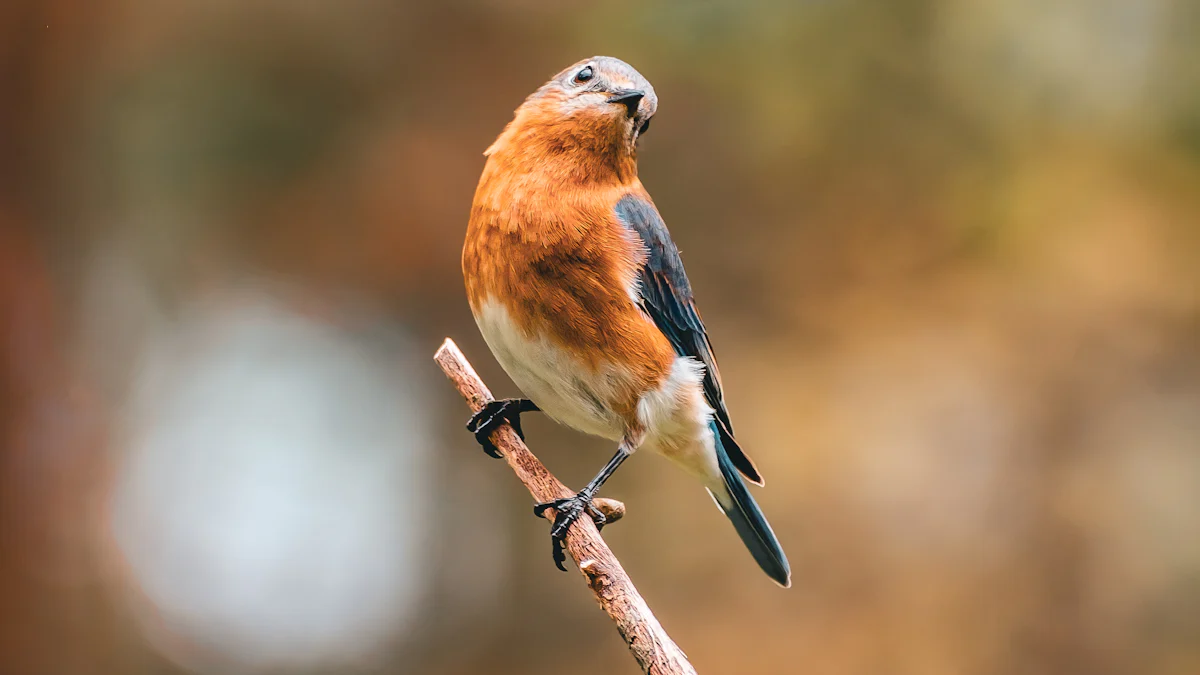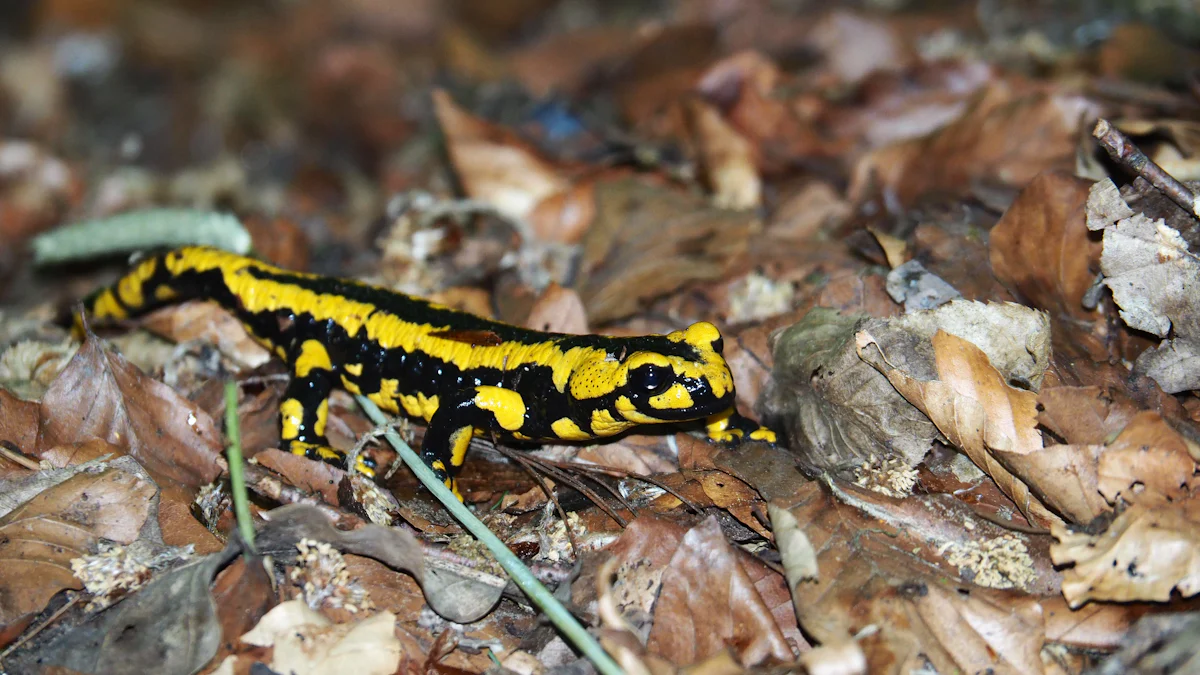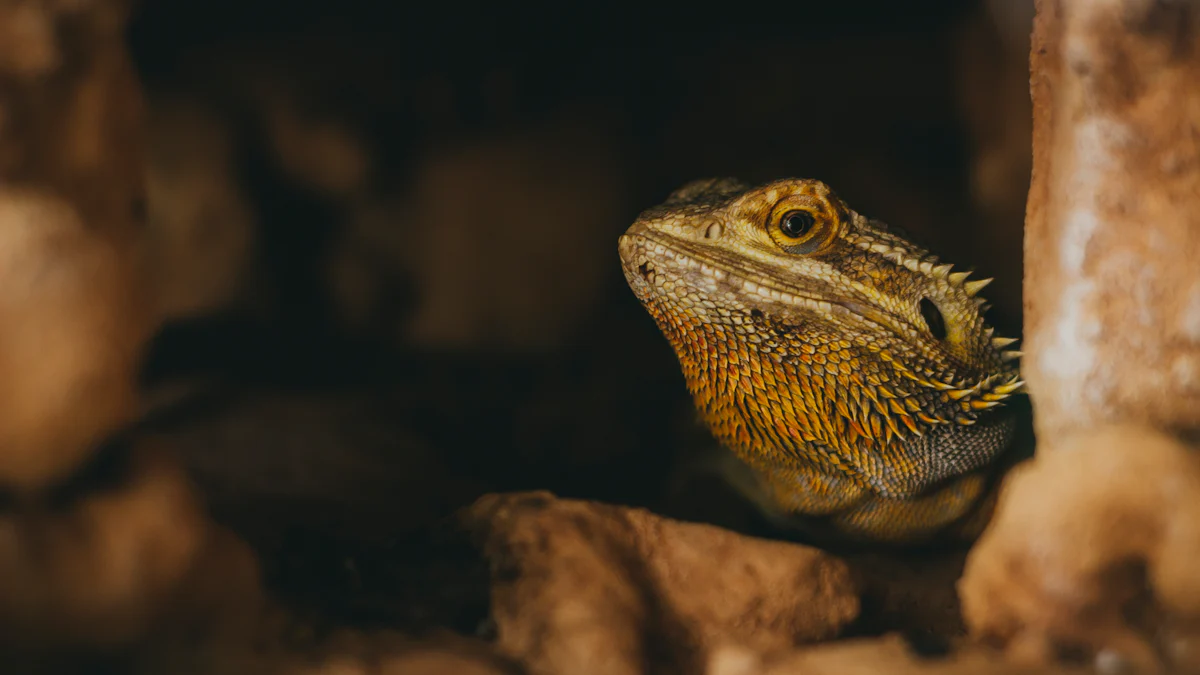
Natural mealworms offer a nutrient-packed solution for pet owners seeking to enhance their pets’ health. These tiny larvae deliver high-quality protein, essential amino acids, and healthy fats, supporting muscle development and energy levels. Packed with vitamins like B12 and minerals such as iron and zinc, they promote overall vitality. Their hypoallergenic nature and digestibility make them a safe choice for pets with sensitive diets. Additionally, mealworms contribute to a balanced diet, fostering healthier skin, shinier coats, and improved activity levels. By incorporating natural mealworms, pets can enjoy a more vibrant and active lifestyle.
Key Takeaways
- Natural mealworms are a nutrient powerhouse, providing high-quality protein, essential amino acids, and healthy fats that support muscle development and energy levels in pets.
- They are hypoallergenic and highly digestible, making them a safe food option for pets with sensitive diets, reducing the risk of digestive discomfort.
- Mealworms cater to a variety of pets, including reptiles, birds, fish, and small mammals, making them a versatile addition to any pet owner’s feeding routine.
- Incorporating mealworms into your pet’s diet can enhance their skin health, promote shiny coats, and boost overall vitality and activity levels.
- Mealworms are an environmentally friendly protein source, requiring less water and land compared to traditional livestock, and producing minimal greenhouse gas emissions.
- Gradually introduce mealworms into your pet’s diet to avoid digestive upset, and mix them with other foods for a balanced and varied meal.
- Choosing mealworms supports sustainable and ethical farming practices, reducing reliance on overfished or unsustainable protein sources.
Why Natural Mealworms Are a Great Choice for Your Pet
Nutritional Powerhouse
Natural mealworms provide an exceptional source of nutrition for pets. Their high-quality protein content plays a vital role in muscle development and repair. Pets require protein to build and maintain strong muscles, and mealworms deliver this essential nutrient efficiently.
Rich in healthy fats, natural mealworms supply energy that fuels pets’ daily activities. These fats also contribute to a shiny, healthy coat, enhancing the overall appearance of pets. Additionally, mealworms are packed with essential vitamins and minerals, including B12, iron, and zinc. These nutrients support various bodily functions, such as boosting immunity, improving blood health, and maintaining energy levels.
Scientific Research Findings: Studies highlight that mealworms offer a nutrient-dense profile, making them a valuable addition to pet diets. Their amino acid composition and digestibility ensure pets receive maximum nutritional benefits.
Safe and Natural Food Source
Natural mealworms stand out as a safe and wholesome food option. They are free from artificial additives and preservatives, ensuring pets consume a clean and natural diet. This makes them an excellent choice for pet owners who prioritize natural feeding practices.
Their high digestibility further enhances their appeal. Pets can easily process mealworms, reducing the risk of digestive discomfort. This feature makes them suitable even for pets with sensitive stomachs or specific dietary needs.
Scientific Research Findings: Independent studies confirm that mealworm protein is hypoallergenic and highly digestible. These qualities make mealworms a reliable and safe food source for pets.
Versatile for Different Pets
Natural mealworms cater to a wide variety of pets, showcasing their versatility. Reptiles, birds, fish, and small mammals can all benefit from the nutritional value of mealworms. Their adaptability makes them a convenient choice for households with multiple types of pets.
For picky eaters, mealworms serve as an enticing option. Their natural flavor and texture often appeal to pets that may reject other food sources. This versatility ensures that mealworms can seamlessly integrate into different pet diets.
Scientific Research Findings: Mealworms have been recognized as a sustainable and nutritious food source for various animals. Their nutrient profile supports the health and vitality of diverse pet species.
Health Benefits of Natural Mealworms for Various Pets

Reptiles and Amphibians
Supports healthy skin shedding and growth
Natural mealworms provide reptiles and amphibians with essential nutrients that promote healthy skin shedding and growth. Their high protein content aids in tissue repair and regeneration, which is crucial during the shedding process. Vitamins like B12 and minerals such as zinc further support skin health by maintaining cellular function and elasticity. These nutrients ensure that reptiles and amphibians experience smoother and more efficient shedding cycles.
Did You Know? Mealworms offer a superior amino acid profile compared to many traditional animal protein sources, making them an excellent choice for reptiles and amphibians requiring optimal nutrition.
Provides energy for active behavior
Reptiles and amphibians rely on energy-rich diets to sustain their active behaviors, such as hunting and exploring. The healthy fats in natural mealworms serve as a concentrated energy source, fueling their daily activities. This energy boost helps maintain their agility and responsiveness, ensuring they remain active and engaged in their environment.
Birds
Promotes feather health and vibrant plumage
Birds benefit greatly from the nutritional richness of natural mealworms. The high-quality protein and healthy fats in mealworms contribute to the development of strong, vibrant feathers. Essential vitamins, including B12, play a role in maintaining feather pigmentation, resulting in brighter and more colorful plumage. Regular inclusion of mealworms in a bird’s diet supports overall feather health and reduces the risk of dull or brittle feathers.
Scientific Insight: Studies show that mealworms contain more protein and fat than many common bird treats, making them a superior option for promoting feather vitality.
Boosts energy for flight and activity
Flight requires significant energy, and natural mealworms provide the necessary fuel for birds to stay active. The combination of protein and fat in mealworms ensures sustained energy release, allowing birds to engage in prolonged periods of flight and other activities. This energy boost also supports their natural behaviors, such as foraging and nest building.
Fish
Enhances coloration and immune function
Natural mealworms play a vital role in enhancing the coloration of fish. The nutrients in mealworms, including iron and zinc, contribute to the production of pigments that give fish their vibrant hues. Additionally, the high protein content strengthens the immune system, helping fish resist diseases and infections. A diet enriched with mealworms ensures that fish remain healthy and visually striking.
Fun Fact: Compared to soybean-based protein sources, mealworms offer a more comprehensive amino acid profile, which supports both coloration and overall health in fish.
Encourages natural foraging behavior
Feeding fish natural mealworms stimulates their instinctive foraging behavior. The texture and movement of mealworms mimic the prey fish would encounter in their natural habitats. This enrichment not only provides nutritional benefits but also keeps fish mentally stimulated and engaged, promoting a healthier and more natural lifestyle.
Small Mammals
A protein boost for growth and maintenance
Small mammals, such as hamsters, gerbils, and mice, thrive on diets rich in protein. Natural mealworms provide an excellent source of high-quality protein, essential for their growth and maintenance. This protein supports muscle development, ensuring small mammals remain active and healthy. Unlike many commercial pet foods that rely on fillers or artificial ingredients, mealworms deliver a natural, unprocessed protein source. Their amino acid profile rivals or surpasses that of traditional animal derivatives, making them a superior choice for small mammals.
Did You Know? Mealworms contain more protein and less fat compared to pork, offering a healthier alternative for pets requiring a balanced diet.
The inclusion of mealworms in a small mammal’s diet also ensures they receive essential vitamins and minerals. Nutrients like B12 and zinc contribute to energy production and immune system support, helping these pets stay vibrant and resilient. By incorporating mealworms, pet owners can provide a sustainable and nutrient-dense food option that promotes long-term health.
Supports dental health through chewing
Chewing is a vital activity for small mammals, as it helps maintain their dental health. Natural mealworms, especially in their dried form, offer a satisfying texture that encourages chewing. This activity helps wear down continuously growing teeth, preventing dental issues such as overgrowth or misalignment. Unlike softer food options, mealworms provide a natural way for small mammals to engage in this essential behavior.
Fun Fact: Mealworms not only support dental health but also stimulate natural foraging instincts, enriching the lives of small mammals by mimicking their wild feeding habits.
Additionally, the act of chewing mealworms keeps small mammals mentally stimulated. This enrichment reduces boredom and promotes overall well-being. By offering mealworms as part of their diet, pet owners can ensure their small mammals enjoy both physical and mental benefits.
Sustainability of Natural Mealworms as a Pet Food Source

Environmentally Friendly Farming
Low water and land usage compared to traditional livestock
Natural mealworm farming requires significantly fewer resources compared to traditional livestock production. Unlike cattle or poultry, mealworms thrive in compact spaces, reducing the need for large tracts of land. This efficient use of space makes mealworm farming an ideal solution for addressing the growing demand for sustainable protein sources.
Water consumption in mealworm farming is also remarkably low. Traditional livestock farming consumes vast amounts of water for drinking and crop irrigation. In contrast, mealworms obtain most of their hydration from the organic materials they consume. This characteristic minimizes water usage, making mealworms an environmentally friendly option for pet food production.
Fact: Studies have shown that producing one kilogram of mealworm protein requires far less water and land than producing the same amount of beef or chicken protein.
Minimal greenhouse gas emissions
Mealworm farming generates minimal greenhouse gas emissions compared to conventional livestock farming. Cattle and other ruminants release methane, a potent greenhouse gas, during digestion. Mealworms, on the other hand, produce negligible amounts of greenhouse gases throughout their lifecycle. This makes them a more sustainable choice for reducing the environmental impact of pet food production.
Additionally, mealworm farming produces less waste. The organic material used as bedding and feed for mealworms can often be repurposed as compost, further reducing the environmental footprint. By choosing mealworms as a protein source, pet owners contribute to a more sustainable and eco-friendly food system.
Did You Know? Research indicates that mealworm farming emits up to 99% fewer greenhouse gases than traditional livestock farming.
A Renewable and Ethical Option
Humanely farmed mealworms
Mealworm farming practices prioritize humane treatment. Farmers raise mealworms in controlled environments that mimic their natural habitats. These conditions ensure that mealworms grow healthily and comfortably. Unlike traditional livestock farming, which often involves stressful conditions for animals, mealworm farming offers a more ethical approach to protein production.
The farming process also minimizes waste. Farmers use organic materials like wheat bran or oats as both bedding and food for mealworms. This dual-purpose approach reduces resource consumption and aligns with sustainable farming principles. By supporting humanely farmed mealworms, pet owners make an ethical choice that benefits both their pets and the planet.
Reduces reliance on overfished or unsustainable protein sources
Natural mealworms provide a renewable alternative to overfished or unsustainable protein sources. Many pet foods rely on fishmeal or other animal proteins, which contribute to the depletion of marine ecosystems. Mealworms offer a sustainable solution by providing high-quality protein without harming aquatic environments.
Switching to mealworm-based pet food reduces the strain on global fish stocks. This shift helps preserve biodiversity and ensures the long-term availability of marine resources. Additionally, mealworms’ rapid growth cycle and efficient farming methods make them a continuously renewable protein source. By incorporating mealworms into pet diets, pet owners support a more sustainable and ethical food system.
Scientific Insight: Research highlights that mealworm protein can replace traditional animal proteins in pet diets without compromising nutritional value. This substitution reduces the environmental impact of pet food production.
How to Incorporate Natural Mealworms into Your Pet’s Diet
Fresh vs. Dried Mealworms
Benefits of fresh mealworms for hydration
Fresh mealworms provide an excellent source of hydration for pets. Their high moisture content, approximately 62.62%, ensures pets receive additional water intake while consuming a nutrient-rich food. This is particularly beneficial for reptiles and amphibians, which often rely on their diet for hydration. Fresh mealworms also retain their natural texture and movement, making them more appealing to pets that prefer live prey.
Scientific Research Findings: Studies from the Journal of Animal Science and Biotechnology highlight that fresh mealworms maintain their full nutritional profile, offering superior hydration and nutrient absorption compared to dried alternatives.
Convenience and storage of dried mealworms
Dried mealworms offer unmatched convenience for pet owners. They have a longer shelf life and require no refrigeration, making them easy to store and transport. Dried mealworms retain their nutritional value, including high protein and fat content, while eliminating the need for live storage conditions. This makes them an ideal choice for busy pet owners or those with limited storage space.
To preserve their quality, dried mealworms should be stored in a cool, dry place. Their lightweight nature also makes them easy to portion and feed. For pets like birds and small mammals, dried mealworms provide a crunchy texture that encourages natural chewing behavior.
Fun Fact: According to Veterinary Practice News, dried mealworms are a sustainable option, as they are often produced using agricultural by-products, reducing waste and environmental impact.
Feeding Guidelines for Different Pets
Portion sizes for reptiles, birds, fish, and small mammals
Proper portion sizes ensure pets receive the right amount of nutrients without overfeeding. For reptiles, such as bearded dragons, 5–10 mealworms per feeding session is sufficient, depending on their size and activity level. Birds, like chickens or finches, can enjoy a handful of mealworms daily as a protein supplement. Fish, especially larger species like koi, benefit from 2–3 mealworms per feeding. Small mammals, such as hamsters or mice, thrive on 1–2 mealworms as an occasional treat.
Tip: Adjust portion sizes based on your pet’s age, size, and dietary needs. Overfeeding mealworms may lead to imbalances in their overall diet.
Frequency of feeding mealworms
The frequency of feeding mealworms depends on the pet species and their nutritional requirements. Reptiles and amphibians can consume mealworms 2–3 times per week as part of a varied diet. Birds may enjoy mealworms daily, especially during molting or breeding seasons when their protein needs increase. Fish should be fed mealworms 2–3 times weekly to avoid overloading their diet with protein. For small mammals, mealworms serve best as an occasional treat, offered once or twice a week.
Scientific Insight: Research from Global Pet Industry emphasizes the importance of balancing mealworm consumption with other food sources to ensure pets receive a complete and diverse diet.
Tips for Introducing Mealworms
Gradual introduction to avoid digestive upset
Introducing mealworms gradually helps pets adapt to this new food source without digestive issues. Start by offering a small number of mealworms mixed with their regular diet. Observe their reaction and adjust the quantity over time. This approach allows their digestive system to acclimate to the high protein and fat content of mealworms.
For pets with sensitive stomachs, such as certain reptiles or small mammals, begin with one or two mealworms per feeding. Gradually increase the amount as their tolerance improves. This method minimizes the risk of digestive discomfort and ensures a smooth transition.
Did You Know? Mealworms are highly digestible, as confirmed by studies in Entomology Today, making them suitable for most pets when introduced properly.
Mixing mealworms with other foods for variety
Mixing mealworms with other foods enhances dietary variety and ensures pets receive a balanced intake of nutrients. Combine mealworms with vegetables, fruits, or commercial pet food to create a well-rounded meal. For example, reptiles may enjoy mealworms alongside leafy greens, while birds can benefit from a mix of seeds, grains, and mealworms. Small mammals may appreciate mealworms sprinkled over their regular pellets.
This approach not only diversifies their diet but also encourages natural foraging behavior. Pets become more engaged during mealtime, promoting mental stimulation and overall well-being.
Fun Fact: According to Smithsonian Magazine, incorporating mealworms into a pet’s diet supports their natural instincts, enriching their feeding experience.
Natural mealworms provide pets with a nutrient-rich, safe, and sustainable food option. Their high protein content, combined with essential vitamins and minerals, supports overall health and vitality. From reptiles to birds and small mammals, mealworms cater to a wide range of pets, enhancing their well-being and activity levels. Incorporating natural mealworms into a pet’s diet promotes a healthier and happier lifestyle. Pet owners can choose DPAT Mealworms to ensure their pets receive a natural and nutritious boost. Start today and witness the positive transformation in your pet’s health and happiness.


